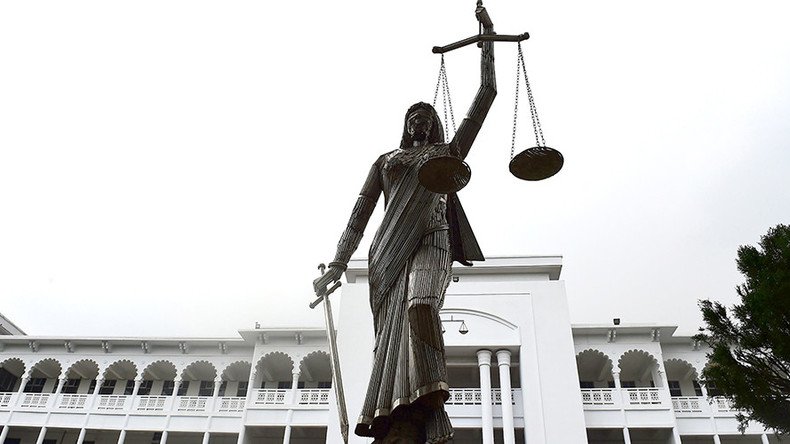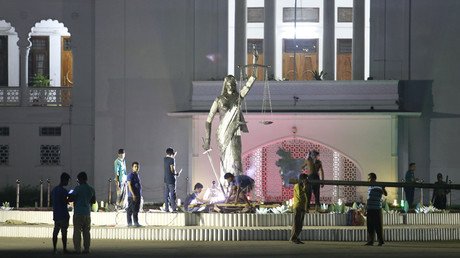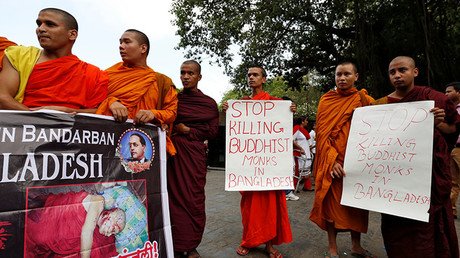‘Un-Islamic’ Lady Justice statue reinstalled in Bangladesh after protests led to removal

An "un-Islamic" Lady Justice statue has been moved to a new location in Bangladesh, after religious hardliners held months of mass protests demanding it be removed from outside the Supreme Court, with some saying it amounted to "idol worship."
The statue, which shows a lady blindfolded and holding scales while wearing a sari, was a Bangladeshi spin on the traditional Greek goddess Themis.
However, it became a highly controversial issue from the moment it was placed on the Supreme Court grounds in Dhaka six months ago.
Opponents quickly demanded the statue be destroyed and replaced with the Koran, calling it "un-Islamic.” Some said it amounted to idol worship, which is strictly prohibited by the Muslim faith.
Prime Minister Sheikh Hasina was among those criticizing the statue, with the leader finally calling it "ridiculous" after initially keeping silent on the matter.
After months of protests, those in opposition of the statue were granted their wish on Friday, when it was dismantled.
However, the step led to even more protests from liberal and secular groups who viewed the statue's removal as a sign of creeping Islamization in Bangladesh, which is officially a secular country.
The sculpture's creator, Mrinal Haque, said he was later asked to reinstall the statue at a different location on the court grounds - one where it would be less visible.
"We have just placed the sculpture in front of the Annex Building of the Supreme Court," Haque told AFP on Sunday.
"I wasn't given any clarification but was only ordered to relocate it," he said.
Despite the statue being relocated to the back of the court - where hardly anyone will see it, according to Haque - opponents of the "un-Islamic" Lady Justice still weren't happy, and assembled outside the courthouse on Sunday to protest against its return.
Several protesters were arrested by police, according to Islamist groups cited by AFP.
Their detainment prompted hundreds of demonstrators to embark on Dhaka's main mosque to demand their release.
"Police arrested nine of our peaceful activists. If they are not released immediately, we will call for a stronger countrywide movement," said Hasibul Islam, spokesman for the student-based Islamist party Islami Shasantantra Chhatra Andolan.
He added that the government risks "falling into danger" by trying to balance the interests of Islamist and secularist groups.
Although Bangladesh is ruled by secular laws, radical Islam and violence against non-Muslims have been on the rise in the country of more than 160 million people.














